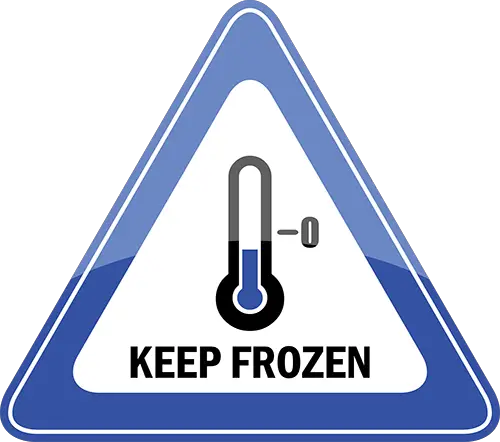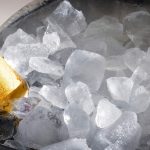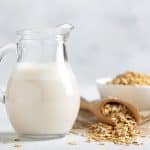Does Freezing Juice Kill Nutrients? Explained
If you have ever frozen fresh juice and then thawed it, you might have noticed that it has a slightly thicker consistency and a sweeter, even fermented flavor.
This is due to the frozen crystals that occur when the liquid freezes. When these ice crystals thaw, small air bubbles oxygenate the liquid, which alters the texture and taste of the juice.
Which leads one to wonder: Does freezing juice kill nutrients or just alter the taste?
Generally speaking, fruit juice does lose some nutrients when frozen. However, freezing juice allows you to store it long-term while still preserving the majority of its nutritional value, making freezing juices a worthwhile process.
Keep reading to find out how to optimize the nutritional value of fresh juice before you freeze it.
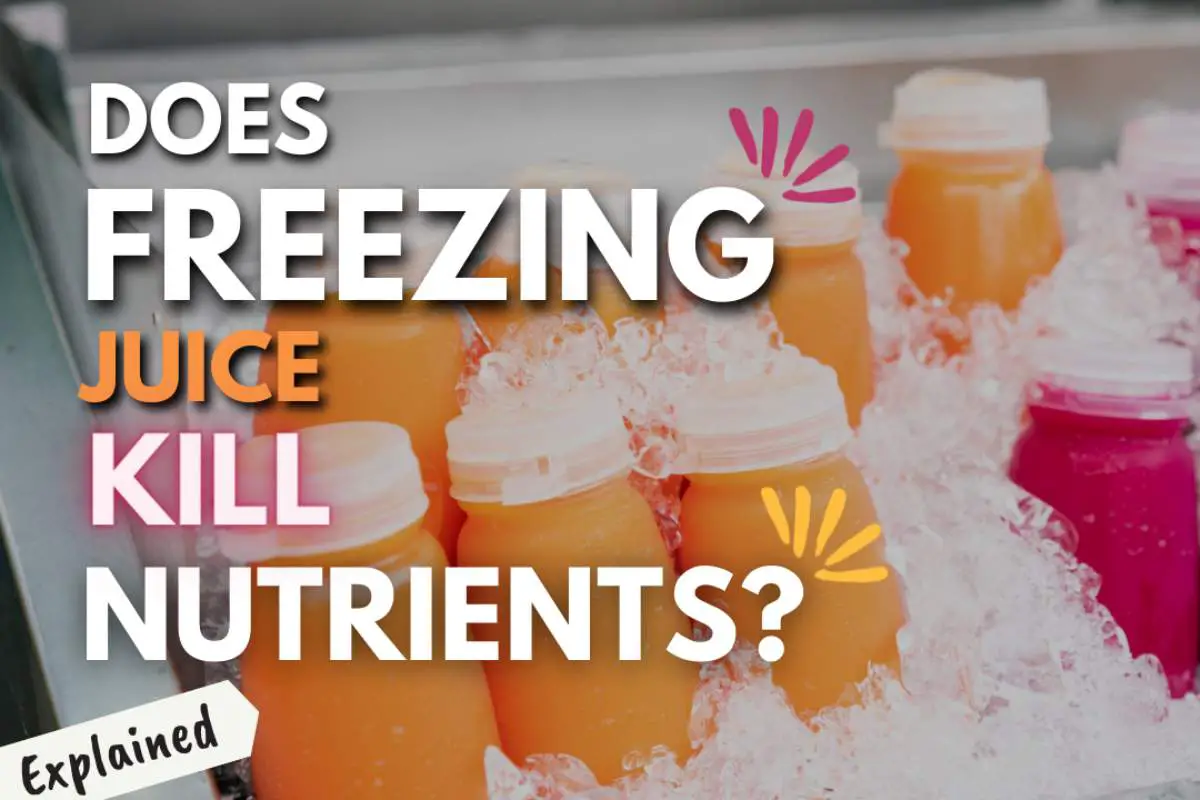
What Happens to Juice When You Freeze It?
According to an article about The Science of Freezing Foods by extension specialists at the University of Minnesota, frozen produce does not maintain all of its nutritional value after it is thawed. In particular, freezing eliminates Vitamin C. This would also be true of frozen juices.
Freezing is still one of the best ways to store fresh juice, even if you do lose some nutrients.
How much nutrition is lost depends on the microbiology of the fruits and vegetables being juiced and frozen.
Does The Freezing Process Destroy Enzymes?
The minute that a fruit or vegetable is harvested, it begins to lose nutrients. It then deteriorates further as it is transported to a storage facility and then the store.
For instance, oranges lose nutritional value through their harvest-to-market process and then again when you cut them open. By the time you juice and freeze the orange juice, it has lost many nutrients.
This happens because fresh produce loses its enzymes, especially after it’s frozen. These are chemical compounds that are responsible for the vitamins, colors, and flavors in a fruit or vegetable juice.
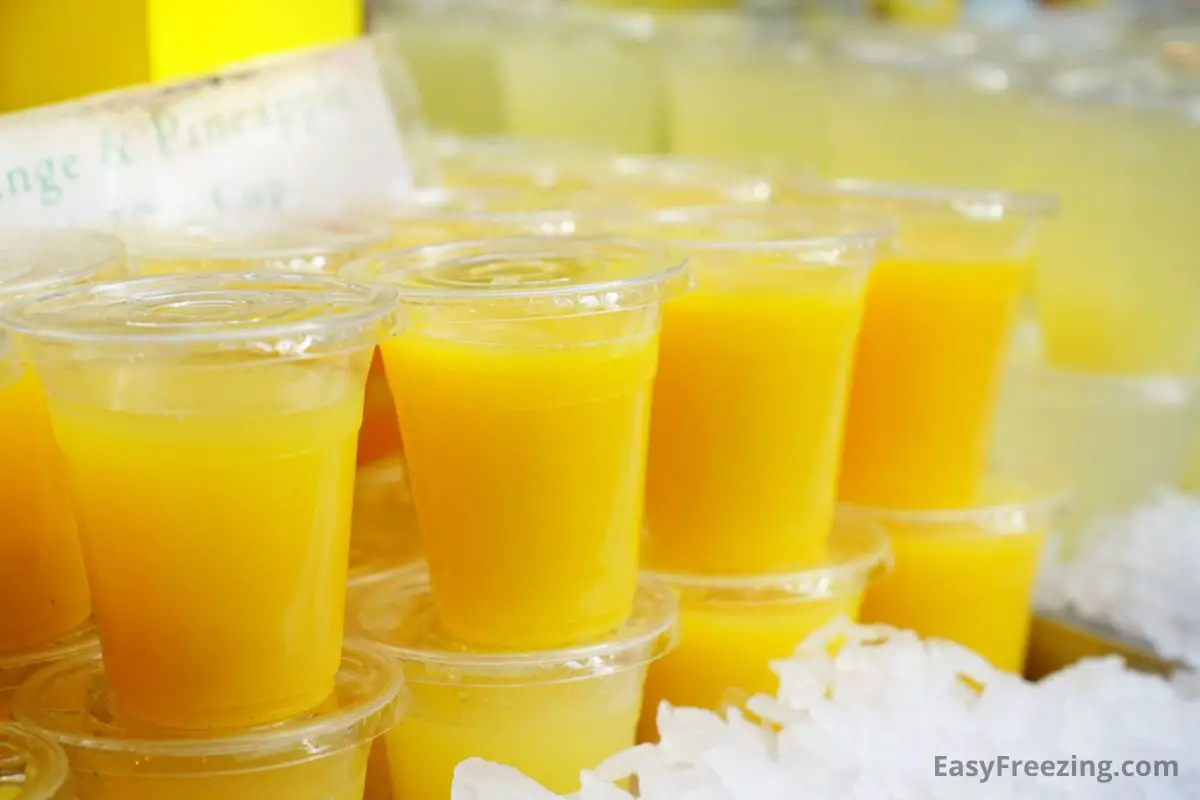
How to Save or Replace Nutrients in Frozen Juice (2 Ways)
While freezing juices does cause a loss of nutrients (mainly vitamin C), there are two things you can do to keep frozen juice at its freshest.
1. Add Ascorbic Acid To Fresh Juice Before Freezing
To avoid spoilage and replace any lost Vitamin C due to the loss of enzymes, you can add powdered ascorbic acid (vitamin C) to your juices. This helps to replenish any diminished Vitamin C content, as well as stall the dissipation of flavor and nutrients.
Pure Vitamin C improves the flavor of juices, giving them a tart, fresh taste. It is a natural additive that will extend the life of juice up to six months in the freezer.
Ascorbic acid is readily available in powdered or tablet form from health food and drug stores or here at Amazon.com. Add the equivalent of 1/4 teaspoon in the form of powder or crushed tablets per eight ounces of juice.
2. Limit The Juice’s Exposure To Air
It is the action of free radicals that causes your frozen fresh juice to lose color and taste. The solution to this is to remove as much air as possible before you store fresh juice in the freezer.
To give your juice a longer shelf life, store it in airtight containers. Plastic “burping seal” containers (Amazon) are also a good choice.
Mason jars can be used to store fresh juice, just be careful to leave about half an inch of space at the top of the glass container. This is because liquids expand when frozen, causing glass containers like mason jars to crack.
You can also store fresh juice in freezer bags that have been sealed very tightly (double bag to prevent leaks). Oxygen-free environments make it harder for bacteria to multiply in the juice.
You can also remove all of the air using a vacuum-sealer kitchen gadget (Amazon). This type of small appliance compresses a freezer bag and sucks all of the air out of it to prevent oxygenation.
Textural Changes in Fresh Frozen Juice
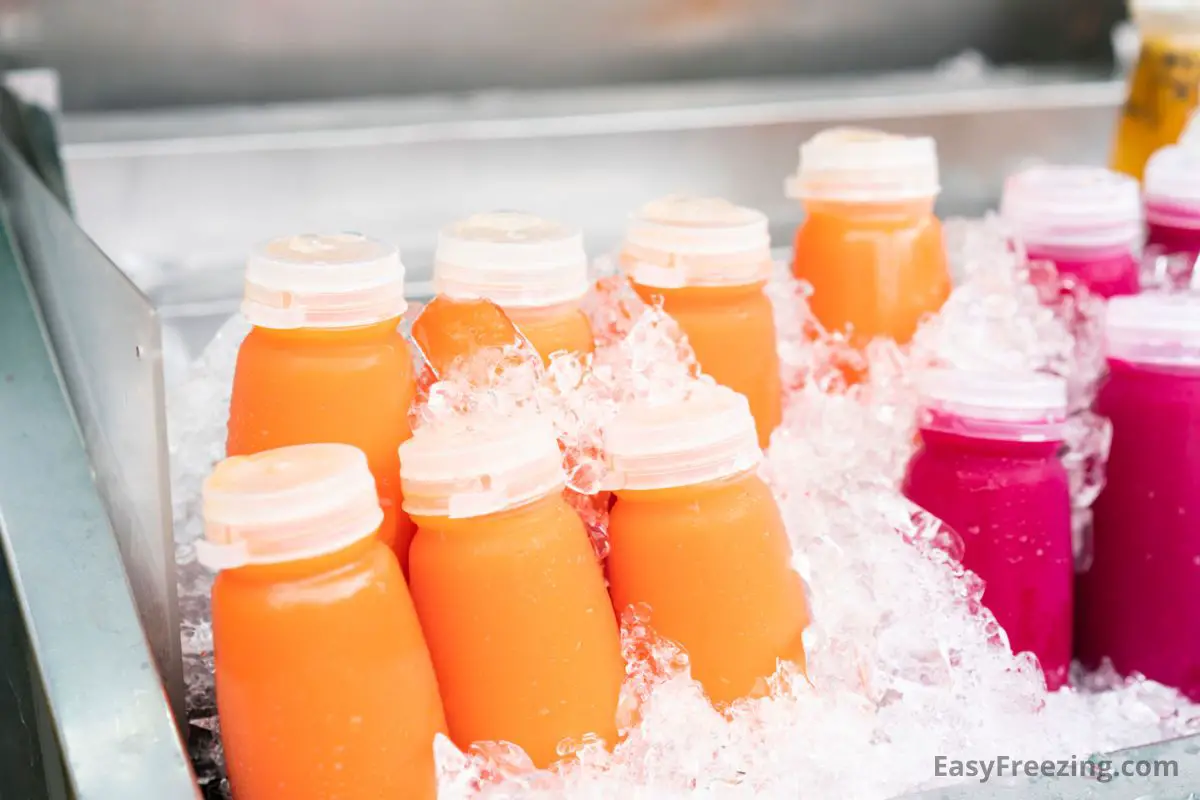
When the water in your juice freezes, the liquid expands as ice crystals grow. This causes a rupture in the juice’s plant cells, causing changes in texture and taste.
The fact that freshly squeezed juice is almost all water makes it difficult to survive the freezing process unless you are quite diligent about these three things:
- Use the freshest foods that you can find, opting for local organic produce whenever possible.
- Use a cold press juicer to extract liquids from your produce to avoid damaging cells with the friction and heat caused by electric juicers.
- Store your raw cold-pressed juices in airtight containers, such as a mason jar or a freezer bag in the coldest temperatures available.
Added Sugar Lowers Water’s Freezing Point
Fresh, raw, cold-pressed juices can be a bit sour, so you might be tempted to add sugar to them, but don’t. Fruits have natural sugars in them already, and any added sugar can further destroy enzymes.
Plus, added sugar lowers the freezing point of water, and juices are mostly water. This creates a thicker, syrupy juice with less nutritional value.
Freezer Burn in Frozen Juices
Freezer burn is easily detected in frozen juices. The juice often develops a dehydrated look that has it shrinking away from the sides of its container. It may also have brown patches that indicate that the juice has degraded.
Fresh vegetable juice, orange juice, and apple juice are best consumed within one month of freezing and within three months from their initial juicing.
Be sure to drink juices before they lose all of their vitamins and minerals. Label everything that you freeze with an expiration date.
Cold Pressed Juicer Versus Centrifugal Juicer
The juice that is going to last the longest in your freezer is going to be the one with plant cells that have not been damaged by heat or the juicing process itself. Use a manual juicer whenever possible.
Don’t Over Process Fresh Juice
The problem with a centrifugal juicer is that it works by whirling the produce to extract the liquid. The violent action of the centrifuge damages the plant cells, which in turn reduces the juice’s nutrient value.
Cold Pressed Juices Are Best
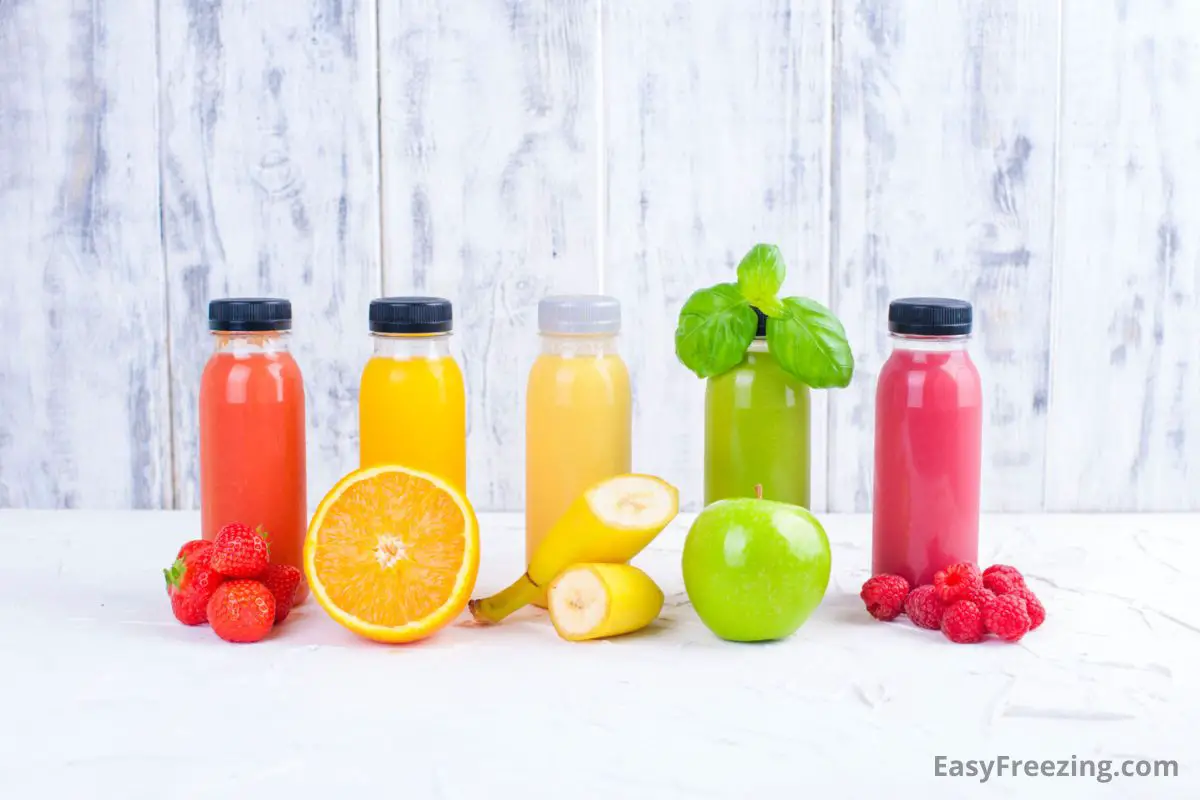
Cold pressed juice fares better in the freezer. The fruits and vegetables used are not bruised in any way during the extraction process, which is the result of manual high-pressure processing. There is less nutrient loss once the fresh juice is in the freezer.
Frozen Juice Freezer Tips
Here are some great tips on how to store fresh frozen juice.
- One solution to keeping the cells in the juice intact is to store juice in ice cube trays. The theory is that the smaller the containers, the smaller the ice crystals will be.
- Place your frozen juice into the coldest part of your freezer. This is usually a lower point near the back.
- You should also set your freezer temperature to the lowest setting possible before trying to freeze fresh juice.
Finally, make sure only to use the freshest fruits or vegetables when juicing to freeze, and make sure to thoroughly wash them to eliminate any microorganisms living on the produce itself.
Does Freezing Juice Kill Nutrients – Conclusion
Keeping juice in the freezer does, in fact, kill nutrients. You need to remember, however, that nutrients in fruits and vegetables, in general, begin to deplete from the moment they are harvested.
Freezing is still the best way to store nutrient-rich juices long-term.
